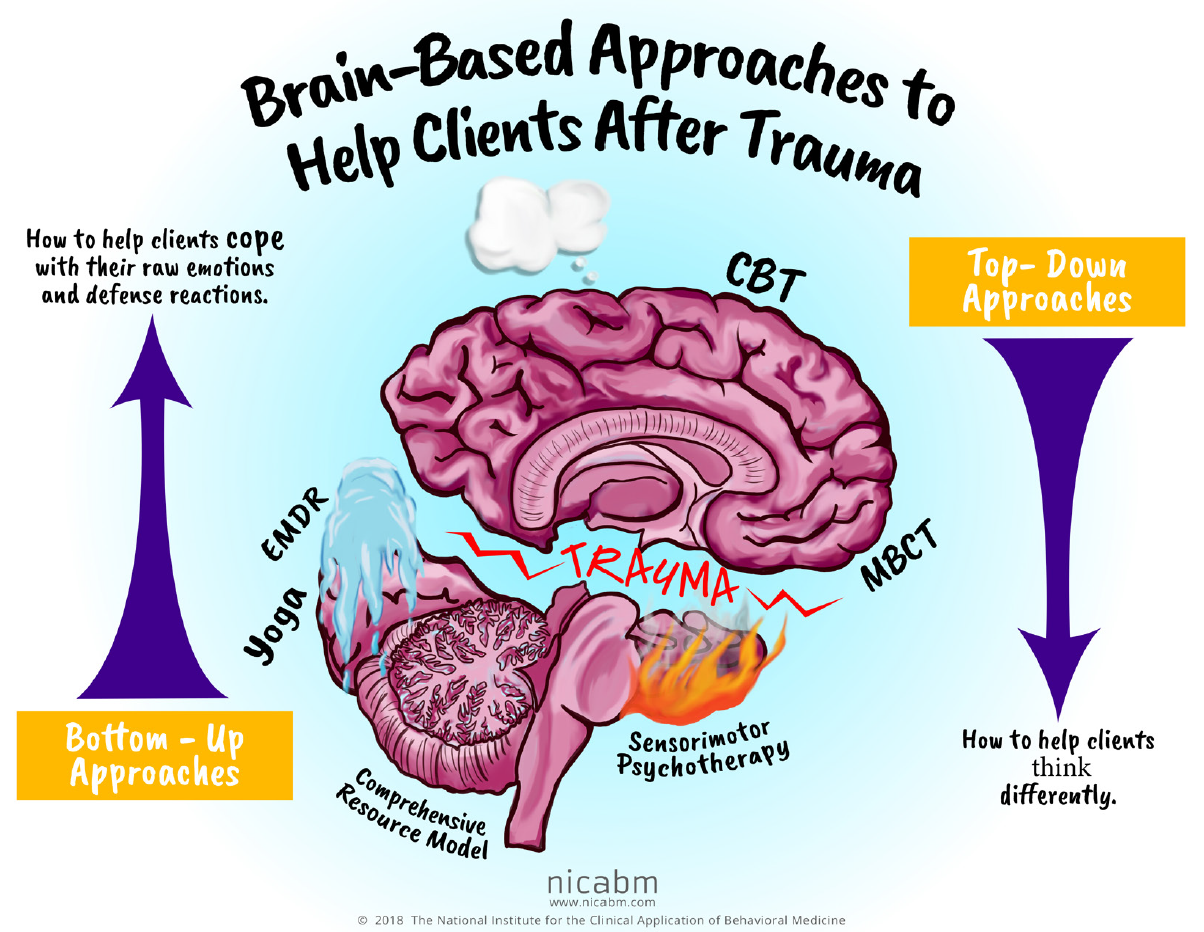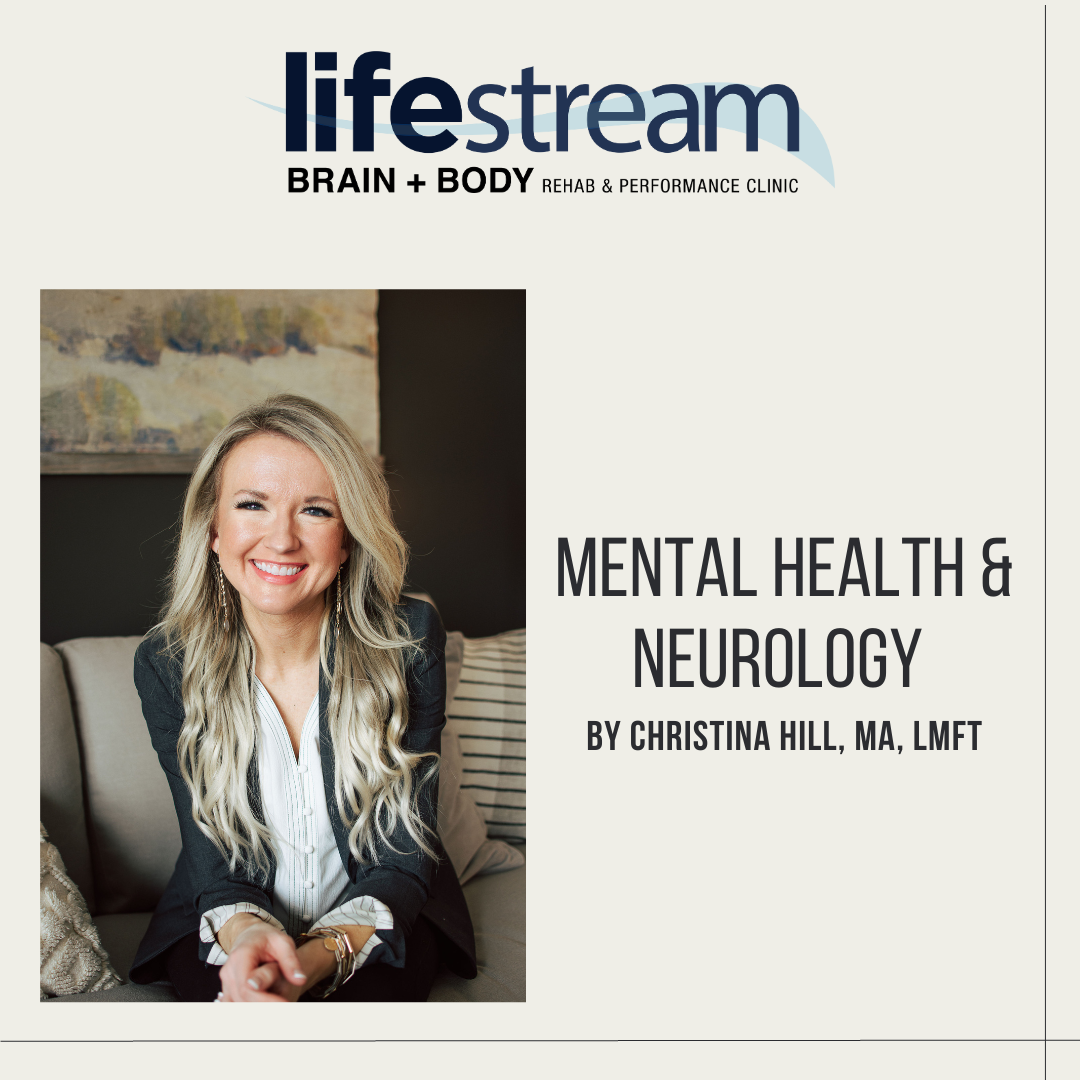Mental Health and Functional Neurology

It’s Mental Health Awareness Month and we wanted to invite Christina Hill, a licensed Marriage and Family Therapist, to share with you how integration between functional neurology and counseling/ mental health care services can allow for optimal functioning.
Our thoughts, emotions and beliefs, along with the quality of our relationships, affect our body’s health and functioning. If you find yourself having a strong emotional response to something that seems elevated beyond your usual level of functioning, it could be a sign that you might benefit from additional support. Our brain sends us messages about whether or not we are safe unconsciously through something called neuroception. This term explains how the body is constantly scanning our environment for cues about safety or danger and subconsciously gathering data to assess any potential threat. If our body isn’t able to metabolize an experience fully, we can end up feeling “stuck” replaying the event or having uncomfortable anxiety symptoms. This can also happen from an accumulation of emotional stress that is stored in the body over a period of time and can put our body and mind into a perpetual state of anticipating danger that can even begin to affect our physical health.
Interventions that incorporate the nervous system can help your body move through the distress and gain resilience for encountering similar triggers in the future. We can target the nervous system through physical interventions like chiropractic adjustments and other neurologic programs such as CogniStrong and/or somatic interventions such as progressive relaxation exercises and visualizations. By processing emotions and addressing unwanted symptoms, the body is better able to “let go” and experience relief. Feeling safe in our bodies is an important part of this process to be effective. Addressing these underlying emotions and life experiences in a safe, non-judgmental environment can sometimes even help get over a hump with some of your physical ailments. If you or someone you love is having difficulty processing emotions or managing life stressors, know that help is available. Reach out and we would be happy to direct you to a caring professional who can help.


